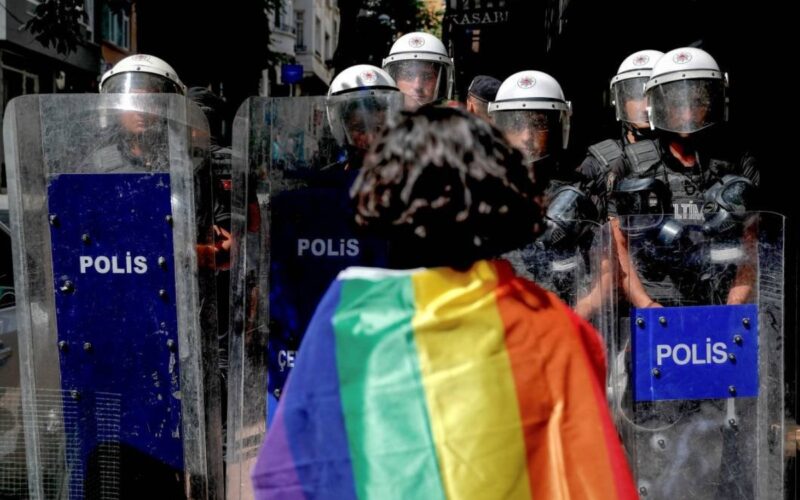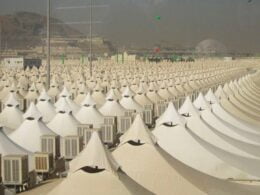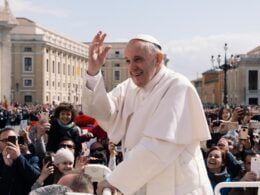Turkish police managed to disperse the long Pride parade march, which is a demonstration of the LGBT community in Istanbul on Sunday, June 26.
Dozens of LGBT activists, as well as a journalist, were reportedly arrested at the annual pride parade. Several local media also reported that the Turkish government had banned the march from continuing this year.
The Pride Parade is an annual parade usually held by LGBT people around the world in the Pride month of June.
Thousands of people reportedly used to attend the Pride parade on Istanbul’s main Istiklal Avenue. However, the continuation of the LGBTQ march in Turkey over the past few years has faced threats from the government of President Tayyip Erdogan and his Islamist-rooted AK Party, which vehemently opposed LGBTQ+ in the country.
Although homosexuality is not categorized as a crime in Turkey, most of society rejects this behavior, and hostility towards it is growing; police action against parades has become more stringent in recent years.
On Sunday, protesters gathered near Taksim Square even though the governor’s office had previously banned marches near the iconic Istanbul landmark. Police in riot gear lined the streets to prevent access to Taksim Square and blocked many roads in the nearby Cihangir neighborhood, where protesters were trying to gather.
During the march, the police handled the march by detaining the protesters and placing them on two buses to prevent them from participating in the march. Among those arrested was AFP chief photographer Bulent Kilic, who witnesses said was handcuffed from behind.
Images posted online show hundreds of people carrying rainbow flags and transgender people trying to gather where they can while shouting slogans before being chased and dispersed by police. At the march, one group was heard chanting the words “Discrimination is a crime, the rainbow is not”, while another protester read out statements to mark Pride week.
Local authorities in the Beyoglu district banned all Pride Week events between June 20-26, citing fears the march could cause public unrest due to public sensitivities.
Subscribe to our channels on WhatsApp, Google News, Facebook and Instagram.Discover more from The Islamic Information
Subscribe to get the latest posts sent to your email.












